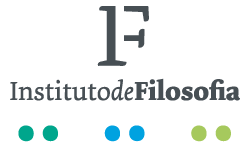Online | From Semiotics to Latour and back
From: 2022-04-27 To:2022-04-27
Thematic Line
Modern & Contemporary Philosophy
Research Group
Aesthetics, Politics & Knowledge
From Semiotics to Latour and back.
The notion of agentivity and the rising of smart objects as social actors
Paolo Peverini (Luiss University of Rome)
The lecture aims at deepening the relation between Semiotics and Latour’s oeuvre following two directions: on the one hand the contribution of semiotic paradigm (the relational and differential principle placed at the foundation of the signification, the overcoming of an anthropomorphic vision of agentivity) in the development of Latour’s research; on the other hand, the influence of Latour’s work in the semiotic field (Peverini 2019).
Even though the relationship between these research perspectives is anything but episodic or marginal, it is evident, as Paolo Fabbri makes clear (2021), that in the field of social sciences the contribution of semiotics has been overall scarcely recognized. In the field of semiotic studies instead we see increasing signs of a renewed interest in Latour's work and in the perspectives arising from the investigation of the different modes of existence and the phenomena of signification at play in the social context. If on one side the role of semiotics cannot be reduced to the metaphor of a useful "toolbox" for Actor Network Theory, on the other it should be recognized that Latour’s original rethinking of such concepts as actant and enunciation has proved fruitful to advance the semiotic reflection, especially in understanding the contemporary world marked by a multiplicity of relationships between human and non-human actors.
After reconstructing the dialectic between semiotic theory and Bruno Latour's research work, the lecture will focus on the notion of agentivity, taking into consideration a new category of digital agents capable of redefining the relations with humans in the performance of everyday actions: smart objects.
A theoretical reflection on the notion of agentivity at play in this category of digital agents will be presented against the background of a sociosemiotic analysis of brand discourses (Amazon, Google) conceived to naturalize the presence of these new devices.
The proliferation of objects designed for intensive and domestic use, equipped with intelligent vocal assistants, such as the widespread smart speakers, urges to put back at the center of reflection notions such as those of interobjectivity and intersubjectivity, to account for the process of naturalisation that affects the new assemblages between humans and non-humans, to account for the ways in which technological tools take on the status of dispositives, which are all the more efficient (and powerful) the more apparently harmless and controllable they are, the more semiotically relevant the more familiar they are perceived.
Organization
Luca M. Possati (IF-UP)
RG Aesthetics, Politics & Knowledge (APK)
Instituto de Filosofia da Universidade do Porto - FIL/00502
Fundação para a Ciência e a Tecnologia (FCT)
